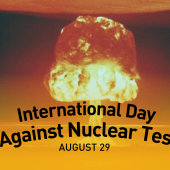International Day of Remembrance of the Victim of Slavery (March 25)

A man of the Karen ethnic in Myanmar with the age of around 55 years old was sitting in a refugee camp on the border of Myanmar and Thailand, thinking of his experiences during the rule of military government in Myanmar in the years of 1970 up to (round about) 2012.
It was a very hard time for the local people of the Karen ethnic areas where the ethnic armed groups and the military government were waging war for decades.
Men were force to carry the ammunition, other supplies and provision for the military soldiers. They were forced to go ahead of the soldiers in the military operations where the journey was very risky of the explosion of the mines laid underground. They were going ahead of the soldiers know to be human-shield. Many of the pregnant women were left behind of their husbands and they have to be looked after by their neighbors after giving birth to their children.
In this difficult time decades ago, many women became widows due to the death of their husbands in the civil war. Moreover, they are to carry the ammunition to the certain distances as far as they can. They were to offer their service by force and had very less time to take care of their own families. Rewards for their labor is beyond imagination. Instead, they have been yearning and praying only to be freed from so called the slavery.
Young people have to flee from their native regions in order to escape the slavery as well as to find ways and means to earn their living and to support their families. This situation created the chances for the opportunists to export many young men and women as a sort of commodity for them to the neighboring countries. And these young people become the sources for the income of those opportunists and those authorities who are so to say indulged in power abuse.
The man of Karen ethnic, mentioned above, now is a priest, recalls the situation of the victims of modern slavery in a country. And the terrible plights of the people of his native region and that of numeral people in the country make him to consider of choosing the life as a catholic priest so that he may be able to take part in lessening the sorrow of the people especially in the spiritual life of the people. And now he is now serving as a priest in the refugees’ camp in Thai-Myanmar border.
Providing assistance, planned by the Church to the migrant workers, is one of the effective means to find the solution the slavery problems.
It is very possible that modern is taking place in different countries, in different work places, in different situations in which those who can be called slaves lose their human rights. Many cases are unknown to the public.
According to the UN records, for over 400 years, more than 15 million men, women and children were the victims of the tragic transatlantic slave trade, one of the darkest chapters in human history.
Every year on 25 March, the International Day of Remembrance of the Victims of Slavery and the Transatlantic Slave Trade offers the opportunity to honour and remember those who suffered and died at the hands of the brutal slavery system. The International Day also aims to raise awareness about the dangers of racism and prejudice today.
In order to more permanently honour the victims, a memorial has been erected at United Nations Headquarters in New York. The unveiling took place on 25 March 2015.
The winning design for the memorial, The Ark of Return by Rodney Leon, an American architect, was selected through an international competition and announced in September 2013.
Fr. Saw Hubert
Radio Veritas Asia (RVA), a media platform of the Catholic Church, aims to share Christ. RVA started in 1969 as a continental Catholic radio station to serve Asian countries in their respective local language, thus earning the tag “the Voice of Asian Christianity.” Responding to the emerging context, RVA embraced media platforms to connect with the global Asian audience via its 21 language websites and various social media platforms.











